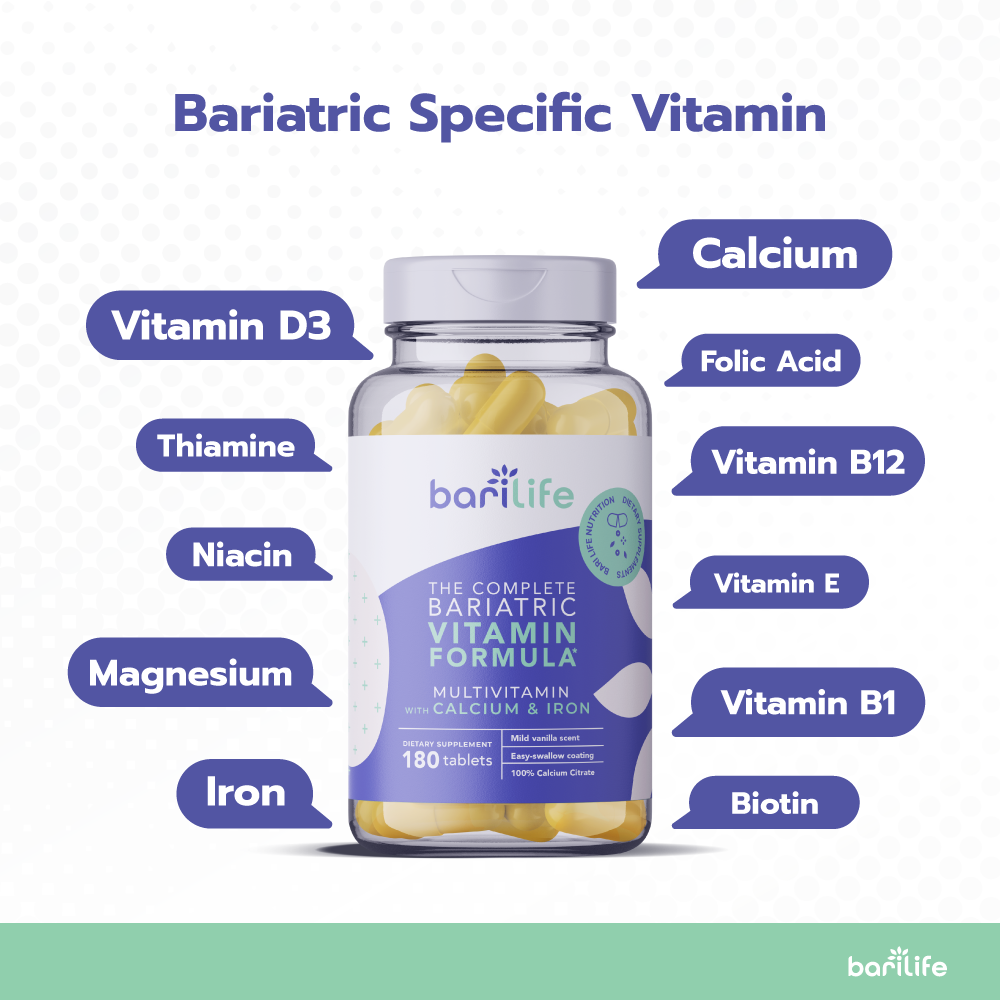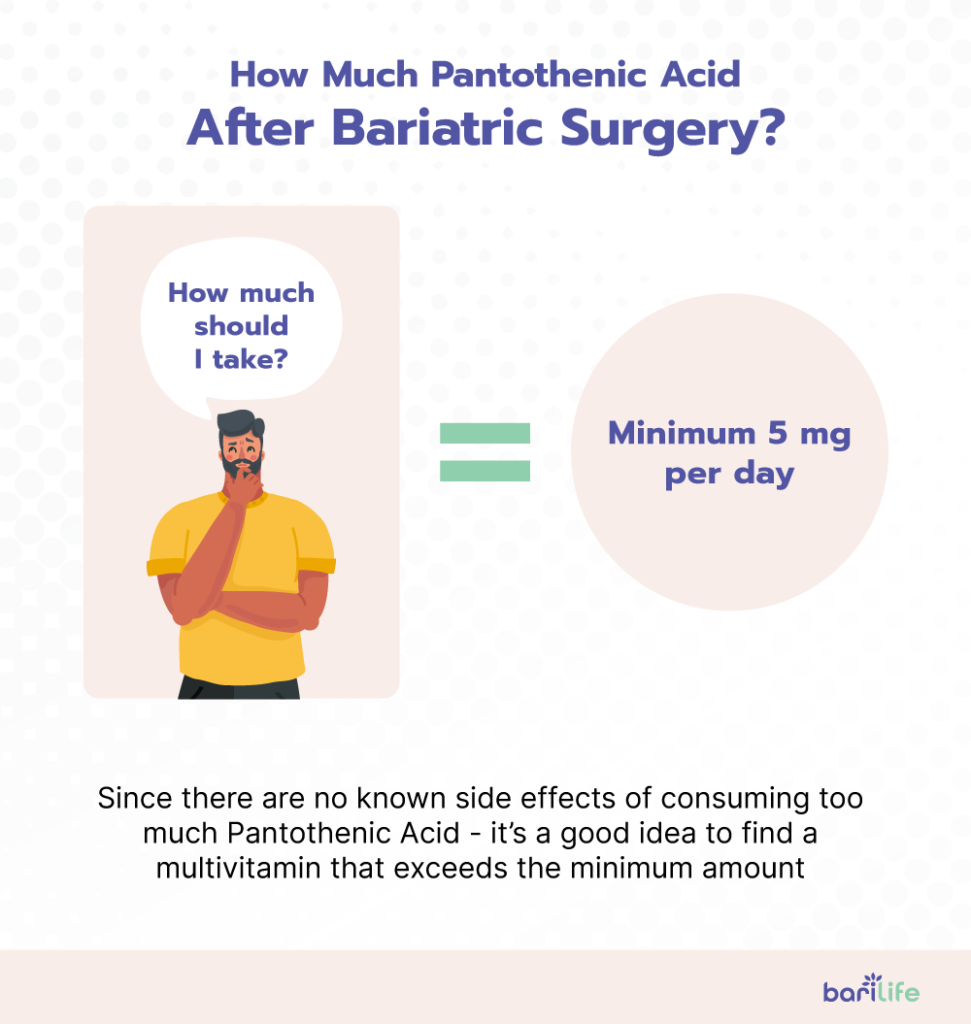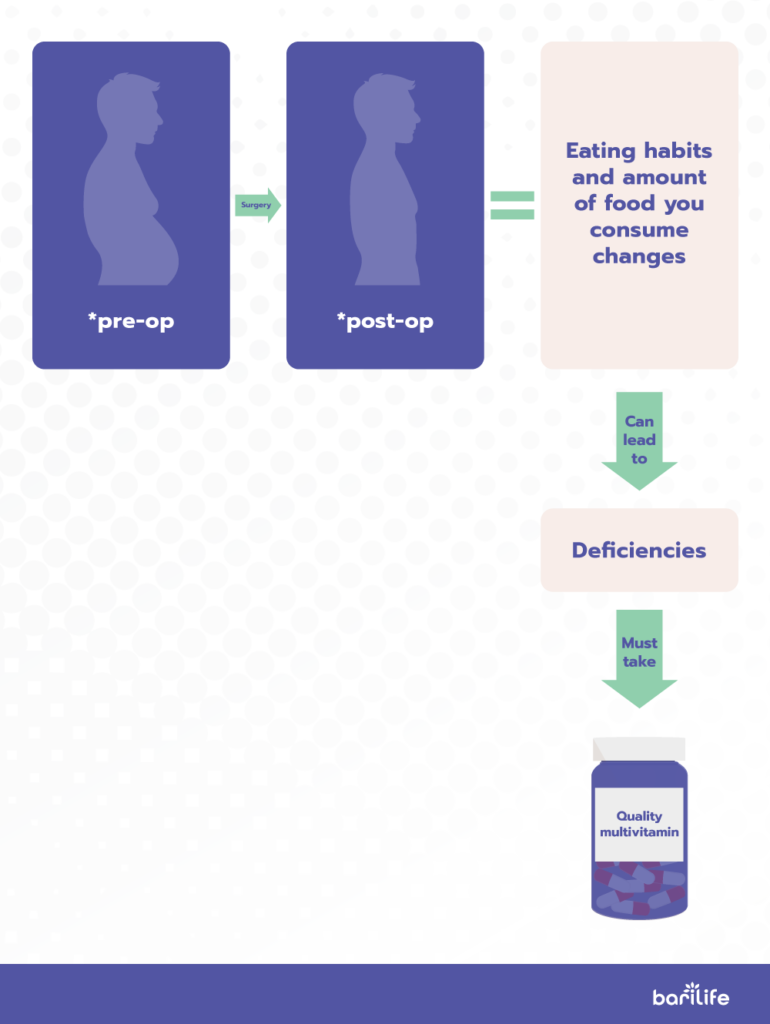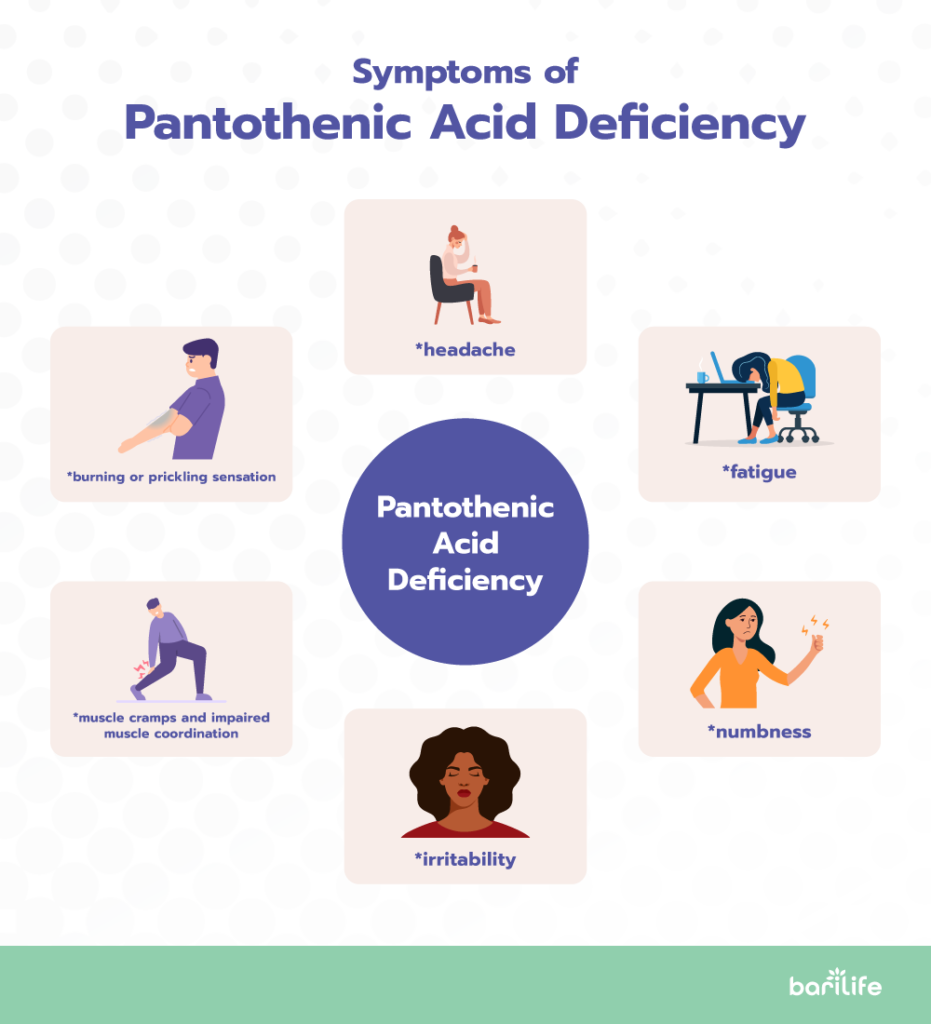After bariatric surgery, you’re on the right track to take control of your health. With a change in food intake and structural alterations in your digestive tract, meeting your weight loss goals is achievable. But that’s not all bariatric surgery can do for you. Other positive benefits include better heart health, less joint pain, and even depression relief. And the list could go on!
While surgery offers many positive changes, consequences can still occur. Vitamin and nutrient deficiencies can be one of these consequences. Without a bariatric-specific multivitamin, nutrient deficiencies can affect your post-bariatric surgery goals. This makes it harder for you to lose weight and keep it off long-term.

One consequence to be aware of is pantothenic acid deficiency after bariatric surgery. This occurs due to changes in food intake but can be resolved by choosing a high-quality bariatric multivitamin. This ensures you get all the vitamins and minerals you need for your post-bariatric surgery body.
Let’s look at the role pantothenic acid plays in the body and why getting enough after bariatric surgery is so important. With this knowledge, you’re in a better position to take care of your long-term health after surgery.
The role of Pantothenic Acid in the body
Pantothenic acid, or Vitamin B5, is a water-soluble vitamin with many functions in the body. Primarily, it makes proteins, carbohydrates, and fats. This essential vitamin also helps your body break down the food you eat and turn it into usable energy. It has also been shown to play a role in skin health!

Pantothenic acid is naturally found in a variety of plant and animal foods. Eggs, milk, vegetables, chicken, beef, and whole grains are good sources of it. While food sources are abundant, pantothenic acid can also come as a supplement or in fortified foods.
Daily guidelines for Pantothenic Acid
Pantothenic acid is a generally safe vitamin, even at high doses. Experts recommend a minimum daily intake of at least 5 mg. But, there are no established daily upper limits, making more than 5 mg a safe way to get enough of this vitamin. No reports of adverse side effects or toxicity have been seen with a high daily intake. Plus, with no known interactions with other supplements or medications, pantothenic acid is easy to take without worry.

Looking for a high-quality multivitamin made for you? Each serving of our Complete Bariatric
Multivitamin Tablets surpass the recommended guidelines for pantothenic acid, so you have everything you need to stay healthy after bariatric surgery.
Causes of Pantothenic Acid deficiency
Since pantothenic acid is in many foods, a well-balanced diet protects against deficiency. But when deficiency does occur, it is often due to poor intake or malnutrition. After bariatric surgery, decreased food intake is common due to post-surgical eating guidelines. This makes deficiency of this essential vitamin more common.

According to a surgical journal published in 2020, 100% of patients were not meeting the recommended daily levels of pantothenic acid 6 months and 12 months after bariatric surgery. Even more, when deficiency does occur, it is often in combination with other nutrient deficiencies. This makes long-term, consistent supplementation after bariatric surgery even more vital!
Our bariatric multivitamin tablets include 40 mg of pantothenic acid in each serving, helping you stay healthy and keep your weight loss on track. This all-in-one multivitamin has everything you need after bariatric surgery.
Symptoms of Pantothenic Acid deficiency
Pantothenic acid deficiency after bariatric surgery can cause a wide range of symptoms, including:
- Headache
- Fatigue
- Numbness
- Irritability
- Muscle cramps or impaired muscle coordination
- Feeling a burning or prickling sensation, often described as pins and needles

If you begin to notice any of these symptoms, let your healthcare provider know.
Complications of Pantothenic Acid deficiency after bariatric surgery
If left untreated, pantothenic acid deficiency can have short and long-term effects on the body. Increases in your triglyceride and cholesterol levels may occur, which would show up in your blood test results. Additionally, without enough pantothenic acid, your liver fat may increase.
While significant, these complications can be eliminated with a high-quality bariatric multivitamin.
Multivitamins for Pantothenic Acid deficiency
To prevent pantothenic acid deficiency after bariatric surgery, choose a daily multivitamin with at least 5 mg. With changes in food intake and the digestive system after surgery, deficiency can occur. But, the American Society for Metabolic and Bariatric Surgery (ASMBS) reports pantothenic acid deficiency after bariatric surgery is minimized by taking a quality multivitamin.
Now that you know the importance of this essential vitamin, make sure your daily multivitamin has enough pantothenic acid in each serving. The best way to do this? Choose a high-quality multivitamin made specifically for your post-bariatric surgery body. This ensures you get all the essential vitamins and minerals you need.

This is our specialty at Bari Life. Our line of vitamins has what you need, including the recommended daily pantothenic acid value. The Complete Bariatric Multivitamin Tablet contains everything needed for health after bariatric surgery. No other vitamin is necessary. Simplify your supplementation and check out our complete multivitamin here.




What are your tips and tricks to post-bariatric success?